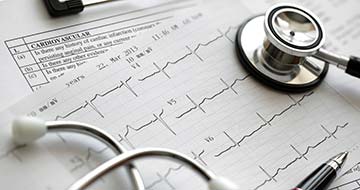Services
The first step in your care process is to understand the nature of your disease so that we can diagnose your condition.
Cardiac Electrophysiology, is the study of the electrical activities of the heart, specifically for the purposes of diag...
When our patients present with problems that may be cardiovascular in nature, we help determine the most likely diagnosi...
We help our patients improve blood flow in their arteries and veins by using very small tubes and specialized tools to d...
When the heart is functioning normally, the arteries are clear and open to allow for easy passage of blood through and o...
The highly trained surgeons and specialists at Biltmore diagnose and treat structural heart disease. We understand the n...
Sleeping Less Than Six Hours a Night Can Contribute to Heart Disease
Lack of sleep or short duration sleep, sleep apnea and other sleep problems have been associated with increased cardiovascular disease. According to a study from the National Institute of Health, those sleeping less than six hours per night were 66% more likely to have hypertension than individuals who got seven to eight hours per night. The American Heart Association recommends seven to nine hours of sleep; variance in this sleep pattern has been linked with obesity, high blood pressure and coronary artery disease.
11 Tips for a Good Night’s Sleep
- Don’t drink or eat caffeine less than 3 hours before bedtime
- Turn off screens (phones, laptop, TV, and other electronics) at least an hour before you want to fall asleep
- Dim lights and limit noise, unless it’s soft instrumental music, or sleep-inducing sounds
- Have some chamomile herbal tea (non-caffeinated)
- Finish exercising at least three hours before bedtime
- Don’t take a nap in the afternoon
- Avoid alcohol before bed – it can actually deplete you of deep, REM sleep
- Keep your room cool (but not too cold)
- Stay on schedule – go to bed and wake up at the same time each day to avoid difficult adjustments in sleep patterns
- Take a warm bath before bed
- If you’re still feeling restless, get up and do something relaxing, such as reading, until you feel sleepy.
If you frequently experience trouble sleeping, see a doctor. It may be something that can easily be addressed. A rested body is a healthier, higher functioning one, so make it a priority for healthy living.







